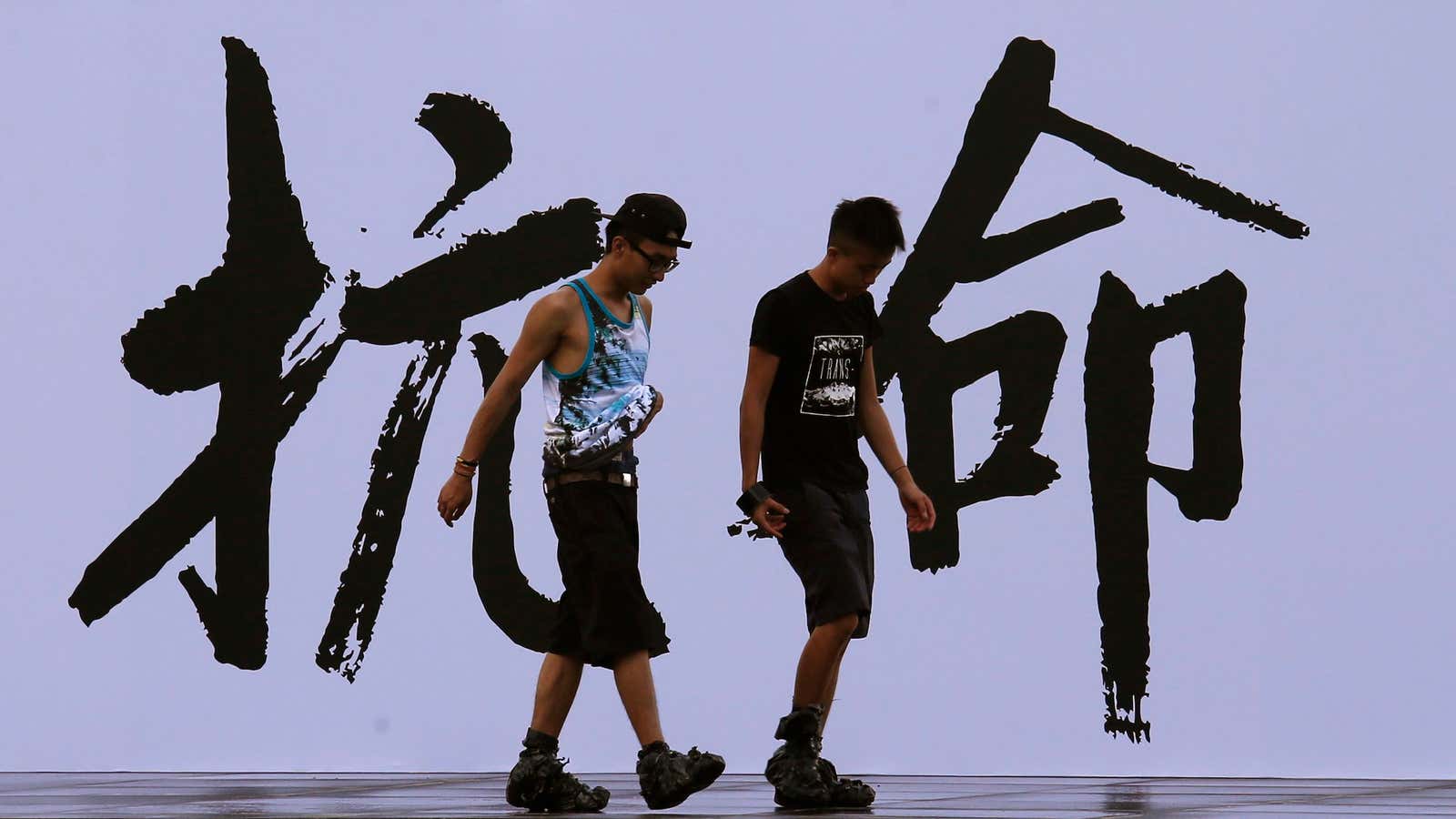After months of pro-democracy protests, including over the weekend, China finally has unveiled the framework for Hong Kong’s 2017 election of its chief executive. On the subject of universal suffrage, the people of Hong Kong ”put forward various views and suggestions,” the Standing Committee of National People’s Congress said. They were summarily ignored.
China will allow two to three candidates, who will have to obtain the support of at least half of the nominating committee members—mostly appointed by pro-Beijing forces in the city—to get on the ballot; then they will be voted on by a similarly-composed 1,200-person election committee. One official in Beijing noted the criteria for being elected included being someone who “loves the country and loves Hong Kong.” In some ways, it’s amazing that China’s leaders even acknowledged the possibility of universal suffrage.
On the same day, not too far away, an election took place at another territory under Chinese control. Macau, now the world’s biggest center for gambling, re-elected Fernando Chui as its chief executive. It wasn’t much of a race. Chui was the only candidate and received 96% of the 396 votes cast by Macau’s election committee, currently composed of 400 people. The whole process took 25 minutes.
Macau was handed over from the Portuguese in 1999, two years after Hong Kong returned to Chinese rule from British. A much smaller island with only one true source of income, it has largely welcomed the mainlanders who come to gamble, drink, and, if they have time, watch some watery acrobatics. Macau and Hong Kong operate under what China’s former paramount leader Deng Xiaoping called “One Country, Two Systems,” which guaranteed a certain amount of freedom in the former colonies, unlike in the mainland, in exchange for acceptance they will be run by handpicked, Beijing-approved technocrats. China wants Hong Kong’s elections to be as smooth as those in Macau, and all signs suggest it will get its way by the time 2017 rolls around.
Yet discontent in Macau has been growing:
- In the election, Chui received 16 blank and invalid votes, the most-ever votes against a chief executive in the city’s history, according to the South China Morning Post. A few people gathered outside to protest the vote itself.
- In May, more than 20,000 people took to the streets to protest the cost of living.
- Casino workers have begun protesting pay and conditions by the thousands. They have marched seven times this year so far. Worse for Chui, people are spending less at casinos amid crackdowns on money laundering and a weakening in the Chinese housing market.
- And almost 9,000 people in Macau (population: 556,000) voted in an unofficial referendum that asked whether residents have confidence in Chui, the son of a Macanese construction tycoon, and whether they support universal suffrage. Police have arrested five of the organizers; one was charged with aggravated disobedience.
Rather than focusing on making Hong Kong more docile like Macau, China may need to worry about Macau becoming more volatile like Hong Kong.
